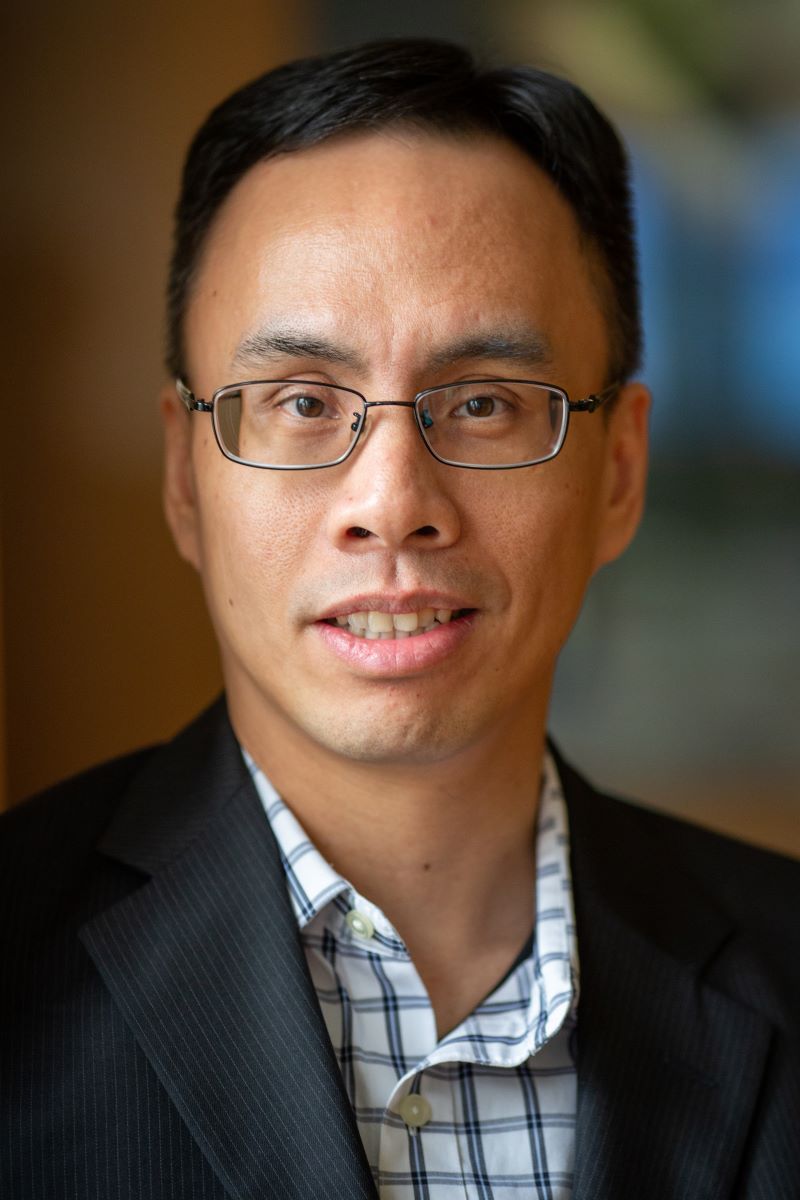CEE professor works with team of researchers incorporating data on human behavior into climate-risk modeling framework to improve resilience of critical water, food, and energy systems
Can human beings and the natural environment find a way to coexist? Deteriorating U.S. infrastructure coupled with extreme weather events―and other effects of climate change―have heightened the stakes involved in achieving such harmony. While technological advances may help mitigate negative impacts, peaceful coexistence may depend on what actions humans are willing to take.
That’s why Y.C. Ethan Yang, a civil and environmental engineer working on issues at the food-water-energy nexus, incorporates data on human behavior into the computer modeling he uses to help improve the resilience of our life-sustaining systems. Such data, however, can be hard to come by.
“We can measure the rainfall, we can measure the temperature, etcetera―but the human behavior data is really, really difficult to get,” says Yang. “I actually work with a lot of social scientists as well as psychologists to try to figure out the best way to incorporate their data into our models in order to simulate human behavior better.”
Almost all of our systems are interdependent, explains Yang, citing the interdependency of the water and energy sectors as an example.
“When we generate power, no matter the source, we need water for cooling purposes,” he explains. “So, the energy sector depends on the water sector in order to function. We also need energy to treat our raw waters for drinking purposes, and to send treated water from the treatment plant to homes and businesses. So, the water sector depends on the energy sector too.”
An adverse event in one system, explains Yang, can cause “a cascade event.”
Houston, We Have a Problem
The February 2021 power crisis in Texas offers a case in point. Unexpected low temperatures caused by a series of severe winter storms produced a massive electricity generation failure. This, in turn, led to shortages of water, food and heat. Regions unaccustomed to extreme heat, like states and cities in the Northeast, are also subject to the possibility of multi-system breakdowns.
“We actually use the models to simulate this: What’s the risk that we might face, especially under the climate change impact conditions?” says Yang. “And then we try to identify what kinds of policies can be implemented or actions taken to mitigate this kind of cascade effect.”
Yang and his group are working with Houston Advanced Research Center (HARC) and the University of Houston on a project designed to increase the resilience of the Houston area’s energy systems. The team is developing a modeling framework that advances systems-level understanding of the impacts of climate change on electrical power infrastructure with support from an Alfred P. Sloan Foundation research grant.
Called the Pythias framework, the model will analyze the impact of climate risks such as extreme weather events, accelerating temperatures and water scarcity on power systems. Pythias will integrate that information with complex physical and socioeconomic models, and a state-of-the-art decision-making model to arrive at a novel approach to power system planning and management. The goal is to address how climate change will affect the long-term planning and management of power systems and needed steps to mitigate climate-related risks.
Yang will bring his expertise in agent-based modeling and will lead that part of the effort. An agent-based model simulates the actions and interactions of autonomous agents―individuals or groups of individuals―in order to understand the behavior of a system and what governs its outcomes. The HARC-led project will try to understand the ability of individual actors within the system to adapt to external conditions and make internal changes to the system to cope with potential hazards or respond to their consequences. The “agents,” in this case, are the power-generation companies.
As more extreme weather events are anticipated, municipalities are trying to “expect the unexpected” and plan now for better resilience and reliability under changing conditions.
Read the full story in the Lehigh Research Review.
Story by Lori Friedman

